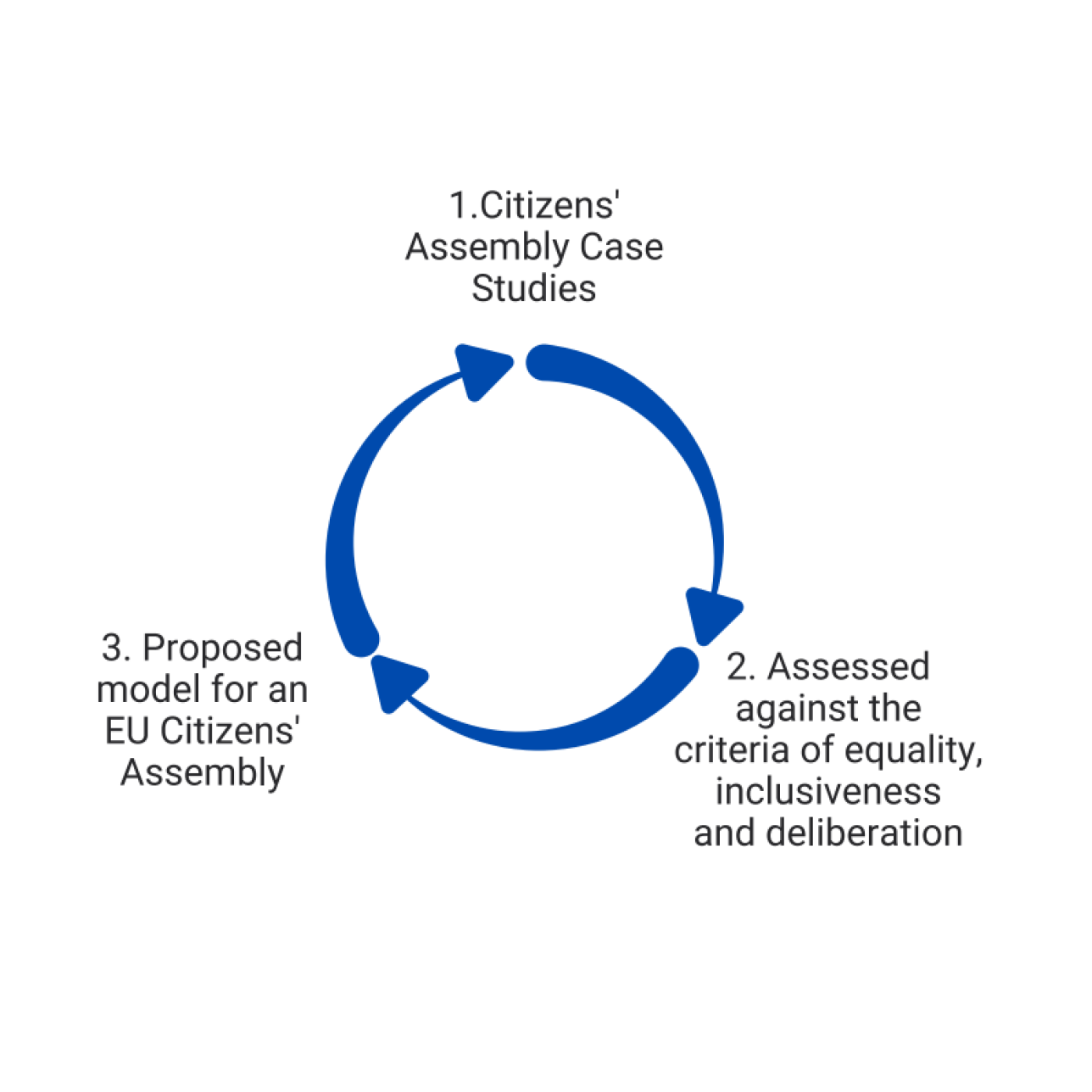Methodology
Our methodology is structured across four integral work packages (WP2-WP5) aimed at advancing the design and implementation of Citizens' Assemblies with a focus on intersectionality and inclusivity. In WP2, we establish the theoretical and methodological foundations by developing a robust framework for the design of Citizens' Assemblies. This framework will guide our evaluation of existing assemblies across the EU and selected Member States in WP3, allowing us to identify three promising models. WP4 will oversee the practical implementation of these models through rigorous piloting, managing technical aspects, conducting pilots, and evaluating outcomes. Finally, in WP5, we synthesize our findings to define a prototype EU Citizens' Assembly, engaging policymakers to ensure impactful recommendations. Additionally, we are committed to establishing a sustainable EU-CIEMBLY Living Lab for ongoing assessment and monitoring beyond the project timeline. Throughout our methodology, stakeholder engagement remains paramount, ensuring relevance and effectiveness at every step.

Sister Projects
EU-CIEMBLY has identified three EU-funded sister projects which are addressing similar topics to our project.
Over the course of our project, we will cooperate with our sister projects, building meaningful synergies for exchanging knowledge and disseminating results to boost the impact of all projects on research, innovation and society.
-
INSPIRE – Intersectional Spaces of Participation: Inclusive, Resilient, Embedded
-
IDEM - Innovative and Inclusive Democratic Spaces for Deliberation and Participation
-
SINCRONY - New models of participatory democracy that prioritize youth inclusion and promote a broader sense of social justice
|
EU-Ciembly is also a part of the Democratic Odyssey Consortium. |
